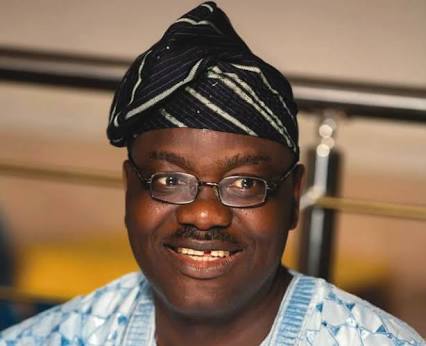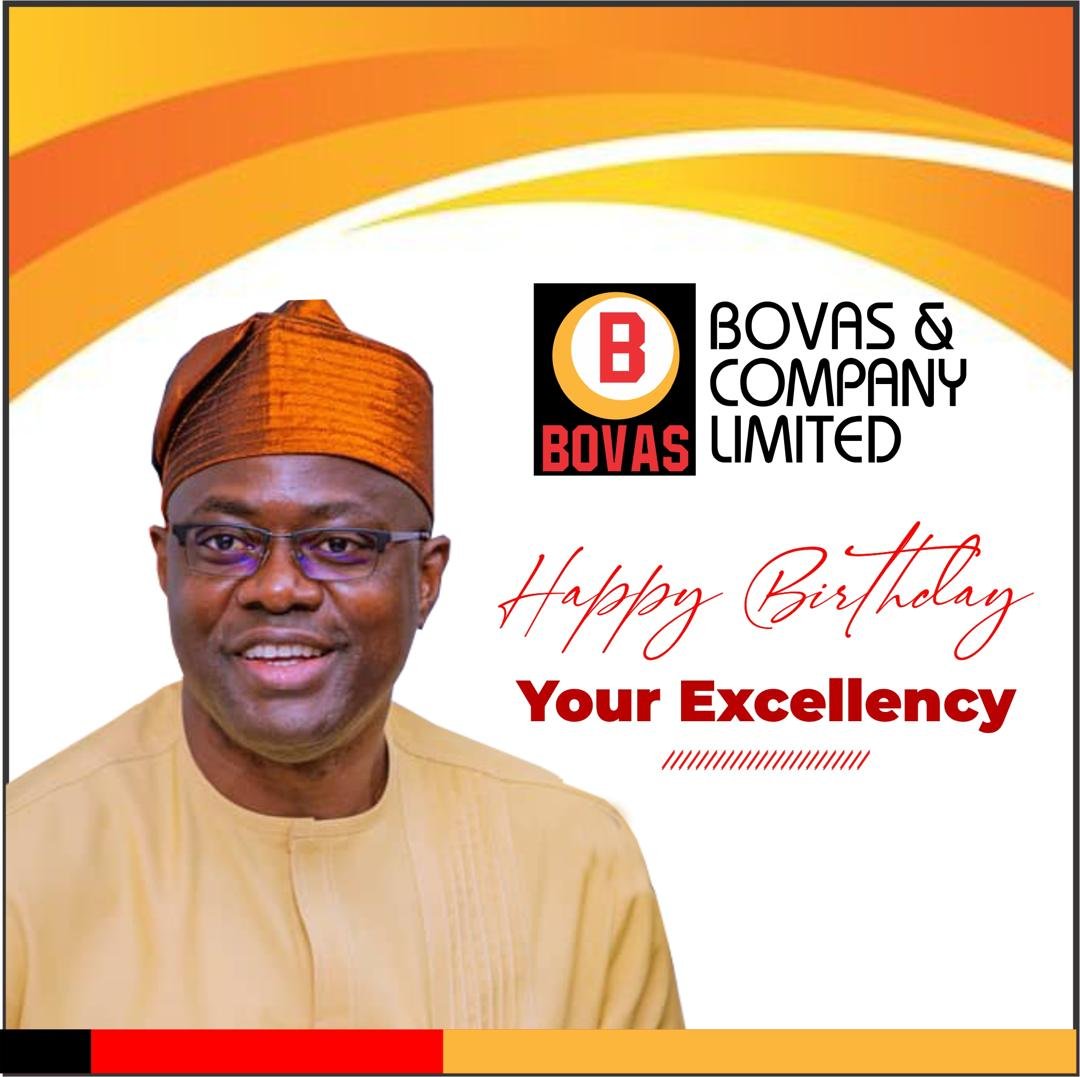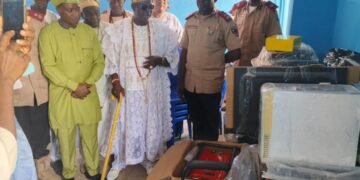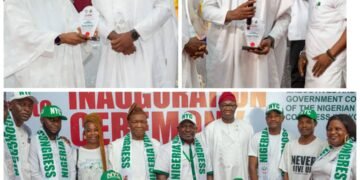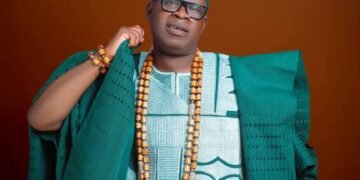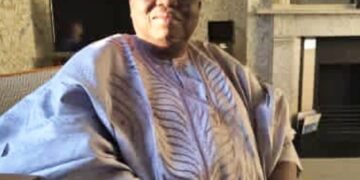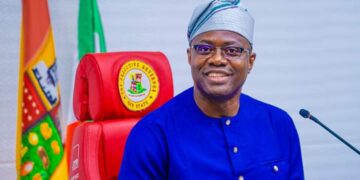Professor Adeolu Akande is a political scientist, a journalist and a scholar. He has served in many capacities at both state and the Federal level . Akande who is 52 years today shares his experience in life and his political agenda. Excerpts
Can we have an Insight into your background?
I was born in Idi-Arere, Ibadan on Jully 3, 1965. My parents moved to Lagos in 1970 where I started my primary education in Fadeyi, then at Ansar ud Deen Primary School, Itire but I was soon back in Oyo State when I was enrolled at Anwarul Islam High School, Iseyin in 1976.From there, I went to Oyo State College of Arts and Science, Ile Ife before coming to the University of Ibadan where I did my Bachelors, Masters and Doctoral degrees in Political Science.
What was your growing up like,can you recall particular school experiences that you cannot forget?
So many but unforgettable experience but there was this particular that happened when I was in form four ,I lived with my uncle and guardian who shared same building with some corpers. One weekend when my uncle had travelled, the corpers organised a party and sent me to the girls’ hostel to invite some girls. I think I was 14 years old then and because of my small stature, I had unfettered access to the girls’ hostel. The girls attended the party but somehow the principal got to know. Mr Babajide Disu of blessed memory was our principal and also English Literature teacher. In the Literature class on Monday, he asked a question and I raised my hand to answer. Then, he called out the name “Baba Eto”. No one bore that name in the class so everyone was at a loss. Then he said,”Adeolu Baba Eto. Are you not the one organising girls for the corpers”. From that day, Baba Eto became my nickname in the school. Mr Disu was a disciplinarian. The corpers were reprimanded, the girls were withdrawn from the hostel and I received very strong six strokes of the cane on the torture as my punishment.
What informed your decision to participate in partisan politics?
When I had my first political appointment in 2001, my conviction was that technocrats could stay at the backside and work with politicians to provide best services for the people drawing from the experience and knowledge of best practices around the world. But I found out that such technocrats are disadvantaged because you could only play advisory role. Besides, they are in such minority that their ideas about good governance are easily drown in the cacophony of political discussions. Finally, I believe anyone who believes our society could be better governed should descend into the arena and be part of the process. If we keep saying politics is a dirty game and we stand aloof, the murky water of politics will eventually drench us in whichever safe corner we think we are hiding. We all owe it a duty to our society to be part of efforts to make it better.
As an experience politicians and political scientists what are the most pressing problems of Oyo State?
The first is generating money to run the government. The second is addressing the problem of youth unemployment that is a time bomb. You see able bodied men in every corner of the street idling away from morning till evening. The society owes these youths a responsibility for gainful employment. We need to bring in skill acquisition and vocational training into the education system. The National Conference on Curriculum envisaged this crisis as far back as 1969 when it recommended skill acquisition and vocational training as the bulwark to future youth unemployment. The dismissal of this recommendation has resulted in the time tomb of youth unemployment. We need to train our youths in entrepreneurship so that we can promote small and medium scale enterprises which employs about 65 percent of labour force in developed economies. We need a vibrant entrepreneurship support programme to encourage and support youths with business ideas. We need to confront the problem of youth unemployment from so many fronts if it will not consume us.
Your CV is not only intimidation but also reveals that you have worked in so many places can you tell us why
Most of the job changes were evidence of the hazard of journalism. I joined The Punch Newspapers as Regional Editor for the South West in February, 1993 but by June, the June 12 crisis started. In 1994, the government of General Sani Abacha shut down and eventually proscribed Punch newspapers. I went back to Nigerian Tribune and by February 1997, four of us that were dubbed “NADECO Reporters” were sacked. The four of us went ahead to set up a pro-democracy magazine, Omega Weekly, with finances from people like Chief Bola Ige and Chief Olu Onagoruwa. The military government came after us and we operated the newspaper underground for two years until we could no longer cope. Our leader, Pastor (Dr) Segun Olatunji went back to become Editor and eventually the Managing Director/Editor in Chief of Nigerian Tribune. Bode Opeseitan, who was Executive Editor at Omega Weekly went back to become Editor of Saturday Tribune while the Managing Editor, Wale Adebanwi who is now first African Rhodes Professor in Race Relations in the University of Oxford and myself took up teaching appointments in the Department of Political Science, University of Ibadan.
What is Adeolu Akande foundation for ?
I think it is safe to assume that no one can grow up in our society without doing some form of philanthropy. In our individual capacities, we have to assist people around us. I am also a beneficiary of such philanthropy by others. The Adeolu Foundation is only a formalisation of what one has been doing over the years. The focal points are youth development and empowerment through which we give assistance to keep children and youths in school or in learning some vocation, assistance in getting job placement, training for gainful economic engagement and mentoring for business. The second focal point is provision of free health services which we take all over Oyo State. Finally, we offer financial assistance to traders and artisans.
What is your take on the restructuring?
If you follow the debate closely, you will conclude that no part of Nigeria is happy with the terms on which Nigeria operates now. Yet, there is no doubt that Nigeria is stronger as one entity. The whole idea of restructuring is that we need to sit down, discuss and agree on the terms on which to operate Nigeria as a country. I support the clamour for restructuring. The present system where 28 state governments cannot pay workers’ salaries is not sustainable. We need to collectively look at it, grant more powers and resources to the states and agree on terms that promote justice, equity and fairness in our national life.


